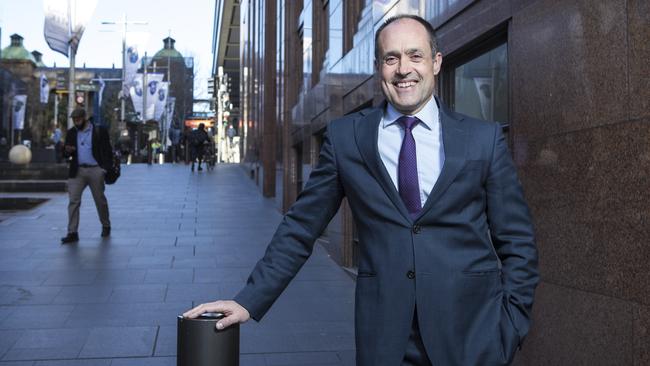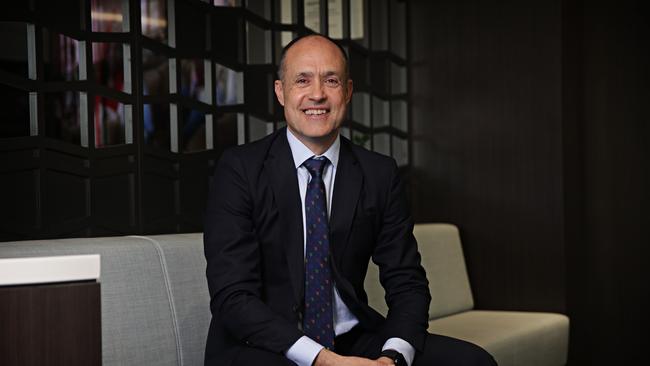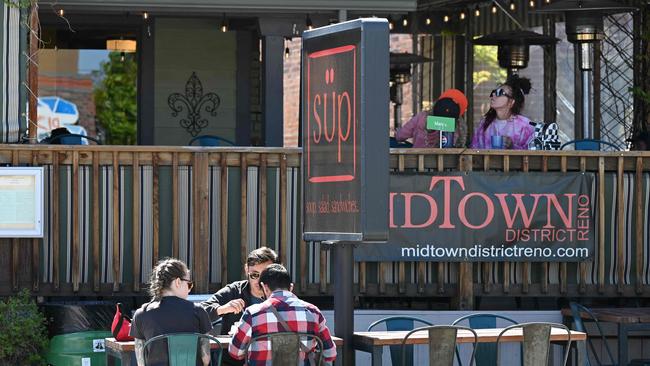Albanese government’s plan to further subsidise NBN ‘inflationary’: TPG
TPG boss Inaki Berroeta says the Albanese government’s plans to extend a scheme that subsidises the cost of the NBN to fixed wireless services will lead to higher prices.

TPGTelecom chief executive Inaki Berroeta says the Albanese government’s plans to extend a scheme that subsidises the cost of the NBN will be a “double dip” and lead to higher prices.
The government is reviewing the Regional Broadband Scheme, in which commercial telcos pay a levy for NBN Co to provide coverage in areas that would otherwise not be commercially viable.
Telcos currently pay $8.26 per subscriber – or more than 13 per cent of the cost of an average NBN plan – to the RBS.
The Australian Competition & Consumer Commission has supported a move to extend the RBS to fixed wireless services, saying they represent a competing service to the NBN and therefore should be subject to the levy.
Mr Berroeta said telcos had already paid billions of dollars to the government to access spectrum. In the past eight years alone, TPG and its competitors paid more than $8bn for various spectrum bands.
“We really don’t understand the purpose of the RBS,” Mr Berroeta said. “We don’t think preserving the economics or maintaining the protection of NBN should create cost-of-living pressures on Australian consumers, and that’s why we reject this type of levy.
“Fixed wireless is a heavily taxed product because the cost of spectrum is very high, so I don’t think it makes a lot of sense to increase the taxation of a product that is already quite heavily taxed. I have always thought that’s a double dip.”

The ACCC said a universal service obligation – funding NBN Co to provide coverage in uneconomic areas – “remains a necessity” and that commercial telcos profited from offering broadband services in metropolitan areas.
“There is still a need for universal services to be provided to the most vulnerable communities to ensure they can access baseline communication services,” the ACCC wrote in its submission to the RBS review.
“In the short term, there are likely to be opportunities to enhance the delivery of the RBS and improve the effectiveness of the current funding arrangements for NBN Co’s loss-making non-commercial fixed wireless and satellite services.
“With these in place, we would support government considering expanding the contribution base to include high speed broadband services supplied over 4G and 5G fixed wireless networks.
“The ACCC considers that all market participants offering broadband services in profitable metropolitan areas as the principal connectivity solution to consumers to meet their individual needs should contribute to costs in the non-commercial footprint.”
TPG has argued that instead of tapping telcos which have been shedding workers – Telstra is sacking 2800 staff while TPG let 120 people go this month – tech giants including Google and Netflix should be forced to help pay for universal access for phone and web services across Australia.
TPG said over-the-top (OTT) service operators – which don’t pay a cent to ensure universal mobile coverage despite profiting from network access – should be forced to help fund coverage, given they profit from telco infrastructure and various government schemes.
“Given telecommunications providers and by extension consumers contribute to such schemes, it is difficult to make the argument companies which rely upon this infrastructure to reach these consumers should not,” TPG wrote in its submission about the future of universal telecommunications services.
“Levying OTT providers broadens the revenue base of any funding, which has the dual advantages of reducing the volatility of funding, and the distortionary impact given the levy per service can be lower.”

TPG said a levy on OTT operators would ensure the sustainability of universal telco networks.
“TPG Telecom recommends future funding programs are funded from general government revenue where possible. This provides a sustainable source of funding, without impact on the competitive landscape of the telecommunications industry.
“A cautionary tale is the USA’s universal service fund, which is funded by telephone and voice over internet protocol providers. The revenue of these services has declined from approximately $US80bn per annum in the 2000s to less than $US30bn per annum today. This has led to the percentage charge on services increasing from 6 per cent in 2001 to approximately 30 per cent in 2022. Future funding agreements should be broader based to avoid such a large impost on individual services.”






To join the conversation, please log in. Don't have an account? Register
Join the conversation, you are commenting as Logout